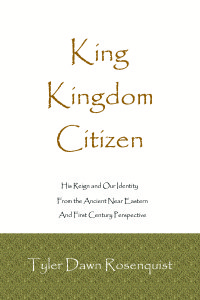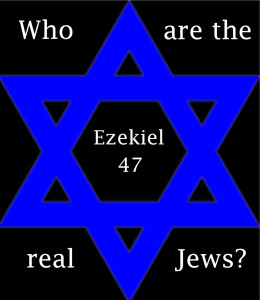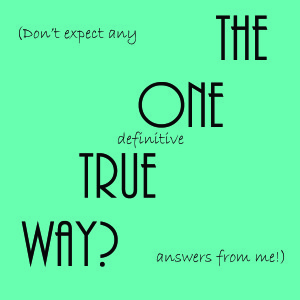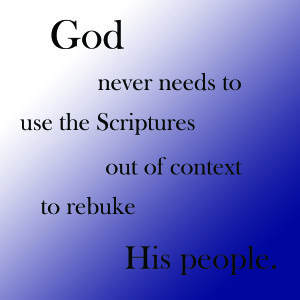I’m not Moses
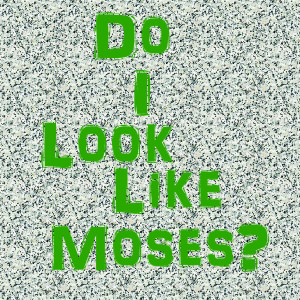 I get asked questions a lot about what people should do, according to the Torah, in certain situations and more often than not I just can’t tell them.
I get asked questions a lot about what people should do, according to the Torah, in certain situations and more often than not I just can’t tell them.
I can tell you what is written, and what is not written – but what I cannot do is sit face to face with God like Moses did. Moses and the Israelites found themselves in a situation very much like ours. They had lived among pagans for hundreds of years and, at the very least, the mixed multitude had never known a lifestyle that wasn’t intimately steeped in pagan idolatry. I mean – even Aaron knew how to make a golden calf! The Word (in Exodus 18) says that Moses sat and judged the people from morning to night and I don’t think he spent all that time settling disputes between people
Ex 18:15-16 And Moses said unto his father in law, Because the people come unto me to inquire of God: When they have a matter, they come unto me; and I judge between one and another, and I do make them know the statutes of God, and his laws.
I think that he was mostly answering questions – because that is oftentimes what people want me to do, not because I am like Moses but because we find ourselves in the same predicament. We are trying to leave lives steeped in sin and idolatry and it isn’t easy. The big questions aren’t about lying, murdering, stealing and adultery – they are about, “What do I do now?”
“I have a job on the Sabbath, what do I do now?”
“We thought we weren’t supposed to circumcise our young sons because we were taught Galatians incorrectly, what do we do now about Passover?”
“My wife thinks I have fallen from grace and won’t give up Christmas and Easter and pork – what do I do now?”
“I own a business that is open on Saturdays and if I close that day it’s going to hurt my employees – what do I do now?”
You see, if all I had to do was go by the letter of the Law, then all this would be very simple. No mercy, no time to transition, no recognition that we are in exile and that exile really complicates our lives. The Torah is the constitution of the Kingdom of God, of which we are all citizens, but it was never written in such a way as to easily operate within the midst of pagan communities. In many ways, we are very much still the exiles of Babylon and that would be true no matter what country on earth we live in. On top of that, we made decisions in ignorance long ago that complicate our lives now. We didn’t have rebellion in our hearts – we genuinely thought we were doing the right thing. But doing what ended up being the wrong thing made consequences that we are only now coming to fully appreciate.
And so we come into the area of “what is the higher law?” Love God and love our neighbors – those are the highest, they guide our interpretations of the others. We cannot use the excuse of feelings to eradicate a law, but we can acknowledge mitigating circumstances that actually cannot, at this time, be overcome. One cannot force a spouse, who is not on board, into Torah obedience and expect to maintain that marital relationship. Divorce will be the most likely outcome and then we will have children living in a broken home and the marriage covenant (that they made before God) in shambles. The husband or wife who resists Torah is simply guilty of being that exact same person to whom eternal vows were made – they didn’t change, and nothing in the vows said that they had to.
Out of the questions presented above – that’s the one I feel most comfortable about answering because it is clearly covenantal. The others are tough, and I can’t make personal decisions for other people. I can tell you what the Word says and what the Word does not say – but I can’t tell you what to do. If I were Moses, face to face with YHVH every day, then I could ask those hard questions and get absolute answers. When someone asked Moses, they were really asking God – but when you ask me, you have to know that you are really just asking Tyler. I am not an elder in the Body, nor am I one who is wise enough or knowledgeable enough to tell people in the Body definitively how they should walk this mess of an exile out. Someday it will be so easy, when Messiah comes, and we won’t face the tough questions anymore – or have to hope that the people giving answers are correct. No one will have to say “Know YHVH” for all will know Him. In the meantime, our lives are a mess and that is mostly incurable as we cannot fix the world that we live in.
If we believe in the mercy and compassion of God, then we can live in the midst of this mess and keep trying – but if we do not believe it, we will fall into despair and drag others along with us. The Law is good and holy and perfect, and for those living in Israel in ages past, they had the opportunity to keep it fairly easily. It’s hard for us, and there are landmines everywhere – but can you imagine, for a moment, how much it must please Him that we try so hard even in the midst of such difficulties? And even more, that we trust in His faithfulness in the areas where we are pretty much stuck? Is anything hidden from Him? He knows when we can and cannot adhere to the letter of the Kingdom laws, and when we simply don’t want to. He knows. What is key is the renewal of our minds and the ending of our hostilities towards His righteous commands – and it is vital that we patiently bear with those who are learning and struggling in the areas that we believe we have mastery over (until of course, we are faced with trials and then sometimes we learn that we are not quite the masters we think we are). We must recognize the journey in ourselves and others – focus on the progress and growth, not on the failings. After all, unless the failings are truly egregious, they are probably just a matter of opportunity and awareness. Adultery is something that should never be tolerated, but a man working a Saturday job to support his family while trying to get enough seniority or a better position where he no longer has to work it – we have to take exile into account. Exile does not effect murder, adultery, stealing, lying or coveting – but it seriously effects how we eat (no matter how hard we try), and the Sabbaths.
So maybe we should all cool our jets and keep in mind that law-keeping is only as good as we are in our hearts. A cruel person who keeps the Law is a poorer neighbor than a kind person who struggles with their Law-keeping. If I play loud music until 9:59 PM every night, walk my dog on a leash to your yard everyday so that her urine burns your grass instead of mine, or never rake my leaves and allow them to blow onto your lawn year around, when I am healthy and able to do so – I am not breaking any civil laws, but I am not being a good neighbor either. Law-keeping is not everything, and we have to stop pretending like it is. We must have balance, or we will demand unbalanced lives from others. And so, in all things – when I don’t have a good answer, I caution patience and balance.
Do not break the Laws of God in order to do anything that you don’t absolutely have to do. That’s the best advice I can give. Even the Rabbis recognize the importance of the preservation of life as being above all laws except those pertaining to actual literal idolatry, sexual perversions and murder. But most of the Laws that we break are not in service to the lives of others – we break them because we are either ignorant of them or do not want to keep them or don’t yet understand how to keep them. Those are the laws that we need to focus on – the ones that we can do something about, not the ones that we can’t do anything about yet. I would never instruct anyone to break a Law, but I do tell people to work towards observance.
Shabbat Shalom brothers and sisters. Peace be upon your homes and your lives.
